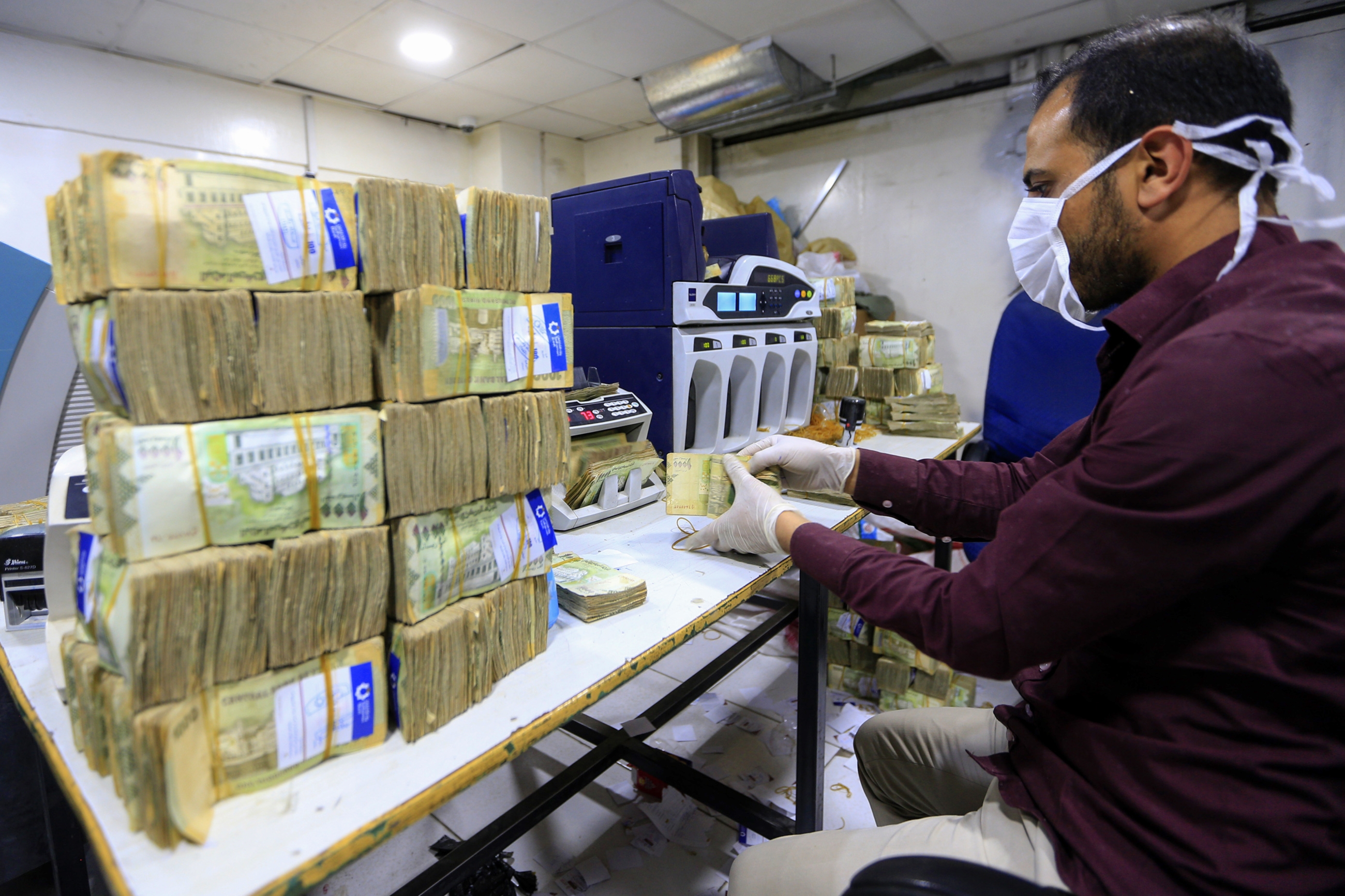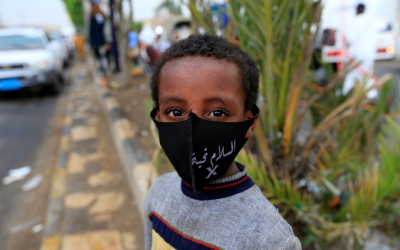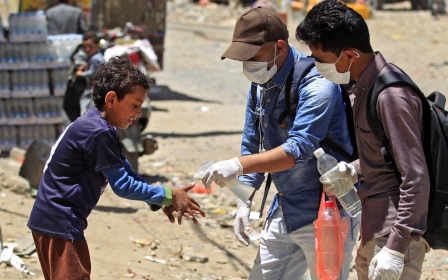Coronavirus: Yemeni expats, from breadwinners to dependents

Thousands of families in Yemen depend on remittances sent home from relatives working in Saudi Arabia. But as the kingdom grapples with the coronavirus crisis, many Yemenis have been cut off from their primary source of income.
According to Yemen Deputy Minister for Expatriate Affairs Mohammed al-Adeel, around half of Yemenis depend on money sent by expatriates, whose remittances play a main role not only in supporting families, but also in helping to prop up the economy amid an ongoing war.
New MEE newsletter: Jerusalem Dispatch
Sign up to get the latest insights and analysis on Israel-Palestine, alongside Turkey Unpacked and other MEE newsletters
Many expats support more than one family in Yemen, but the practice has been hampered by the outbreak of coronavirus, especially in Saudi Arabia, where more than two million Yemenis work, according to Adeel.
Operations in many sectors have been halted in the kingdom as part of preventive measures against the virus.
Workers who got paid on a day-to-day basis were the most affected, as they lost their daily income and have been forced to dip into their savings. Some have gone from being the primary breadwinners to requesting financial assistance from their families in Yemen.
Asma Amer's husband has been working in Saudi Arabia as a construction labourer since 2008 and would send money to his family and his two brothers, both of whom are public servants in areas controlled by the anti-government Houthis and have not received their salaries since August 2016.
Despite the civil war that has raged since 2015, the three families had a good life in the al-Maafer neighbourhood of the city of Taiz and were able to buy the necessities they needed from Ahmed Amer's remittances.
"We didn't suffer from a lack of anything since 2008, and my husband used to send us money every month," Asma told Middle East Eye.
In mid-March, Ahmed told his wife that he couldn't work any more as Covid-19 had started spreading in Saudi Arabia and lockdown procedures had been put in place by the authorities.
"When he told me that he could no longer work, we started to worry that he will stop sending us money," she said. Sure enough, Asma soon received a call from Ahmed telling her that he had nothing to send.
"It was bad news for the families who rely on his remittances. We have been praying to God to lift this misery from the world," she said.
"Ahmed is the breadwinner for three families, and we have all been affected by this disease."
Asma said she had been depriving her children of many things and had resorted to buying only the very basic necessities to save some funds for the coming months.
But things then got worse for the family when, less than a month ago, Ahmed asked her to send him money.
"I wasn't aware that I would have to send him money and I almost spent all of our savings," she said.
"I sold my necklace and sent him 1,500 Saudi rial [$400]. I hope corona will stop spreading and they can go back to work in Saudi Arabia."
With the proceeds from selling her necklace, Asma has until now managed to help her husband, but she worries she won't be able to sustain him for long if the crisis continues.
Yemen has recorded 310 confirmed coronavirus cases and 77 deaths, but the number of infections is believed to be considerably higher.
Better option
Hani Shaibani, a 42-year-old waiter in Jeddah, said he had not worked since mid-March due to lockdown measures imposed to fight the spread of the illness and that his savings were dwindling.
Yet, while it remained unclear when he would be able to go back to work, Shaibani said that there was not enough reason to return home.
'They may starve to death in Yemen, but we are safe in Saudi Arabia, and we will definitely return to work'
-Hani Shaibani, Yemeni expatriate
"I barely fled Yemen in 2017. After two years of suffering from unemployment, I started a good life in Saudi Arabia and I transfer money to my family in Yemen," he told MEE.
Shabaini had spent his savings over the past two months and said he might be forced to ask his family to send him money, but he still believed the situation was temporary.
"I'm against those who want to return to Yemen because they have stayed at home for two months. In Yemen they may stay home without work forever.
"They may starve to death in Yemen, but we are safe in Saudi Arabia, and we will definitely return to work."
Shaibani also voiced concern over the spread of Covid-19 in Yemen and mistrusted the official number of confirmed cases, saying the toll was undoubtedly much higher than what had been declared.
Last week, Saudi Arabia began easing restrictions, which Shaibani hoped was a good start that would lead him back to work.
Breadwinners
Adeel, the deputy minister, said in February that the annual remittances from the Yemeni expatriate community amounted to around $8bn, adding that they constituted the main source of foreign currency and acted as a stabiliser to the local currency.
There are around seven million Yemeni expats in 50 countries. According to Adeel, they were the breadwinners for half of the Yemeni population.
Around 80 percent of Yemen's population - 24 million people - were in need of some kind of humanitarian assistance, according to the United Nations.
Ahmed al-Quradhi, an owner of an exchange company in Taiz, said that the remittances of Yemeni expats in Saudi Arabia played a primary role in alleviating the suffering of families and in maintaining the value of the Yemeni rial.
"If it were not for the remittances of expats, the Yemeni rial would have collapsed more than it already has," he told MEE.
The local exchange rate for the Yemeni rial, which was around 215 to the US dollar in 2014, collapsed over the past two months alone to between 620 and 700 against the dollar.
"I know many families used to receive remittances from their relatives in Saudi Arabia, but most of them have not received anything in the past two months," Quradhi added.
He said that every Ramadan, the holy Muslim month of fasting which ended this year on 23 May, Yemeni expats sent more money than usual as they pay zakat, charitable donations, and helped as many of their relatives and needy people as they could.
This year, however, only a few sent zakat home.
Middle East Eye delivers independent and unrivalled coverage and analysis of the Middle East, North Africa and beyond. To learn more about republishing this content and the associated fees, please fill out this form. More about MEE can be found here.






